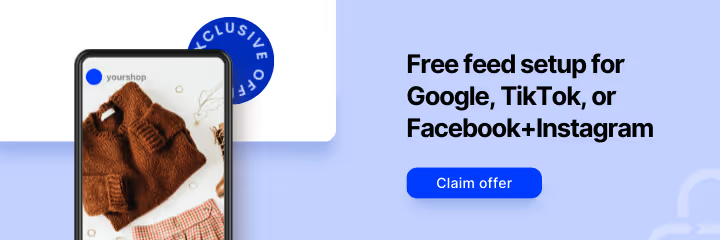The coronavirus is front-and-center in everyone’s minds right now, and for good reason. It has upended daily life across the world and its impact on global commerce is yet to be determined.
A retailer survey conducted by Digital Commerce 360 about the effects of coronavirus on ecommerce finds that a sizeable majority (64%) expect online sales to remain steady or even increase because of the virus.

And while isolation and social distancing may lead to a boost in online retail, it could also lead to at least some interruptions in the supply chain and workforce accessibility. Amazon, for example, is temporarily halting FBA intake of non-essential products from third-party sellers to prioritize high-demand essential items amid the coronavirus outbreak.
We are seeing increased online shopping, and as a result some products such as household staples and medical supplies are out of stock. With this in mind, we are temporarily prioritizing household staples, medical supplies, and other high-demand products coming into our fulfillment centers so that we can more quickly receive, restock, and deliver these products to customers.
These are the categories Amazon has deemed essential:
- Baby Products
- Health & Household
- Beauty & Personal Care
- Grocery
- Industrial & Scientific
- Pet Supplies
Sellers supplying products deemed non-essential by Amazon might will not be able to restock until the freeze is lifted. For now, those sellers will need to use other fulfillment methods to deliver products to their shoppers.
To help sellers navigate these uncertain times, we are sharing a list of resources from around the retail industry, the ecommerce community and beyond.
Do’s and Don’ts of Ecommerce During the COVID-19 Outbreak
- Create at least one campaign specifically for products in your catalog that might see a spike in demand during this time.
- Don't make false claims. There have been reported cases of products being removed from Amazon and other marketplaces because sellers falsely claimed they would prevent COVID-19 and “isolate saliva-carrying viruses." Amazon has reportedly removed over one million products for violating such policies in February alone.
- Don’t price gouge. Each state has its own laws about price gouging during an emergency. Penalty for breaking these laws can cost offenders as much as $25,000 and 60 days in jail.
- Offer free or reduced shipping.
- Don’t be afraid to ask for help. Local government officials in San Francisco and New York City are already offering support. Check your local city or town websites for information.
Resources for Sellers
- American Chemistry Council: Products That Help Stop Spread of Coronavirus
- CARES Act: U.S. Congress' “Coronavirus Aid, Relief, and Economic Security Act” Will Provide $350B in Small Business Relief
- Centers for Disease Control and Prevention: Coronavirus Disease 2019 (COVID-19)
- Centers for Disease Control and Prevention: Interim Guidance for Businesses and Employers
- Chamber of Commerce Workplace Safety Guide: Guidance on Preparing Workplaces for an Influenza Pandemic
- Facebook: Facebook Small Business Grants Program
- FedEx Fulfillment: FBA Alternative from FedEx
- Google: $340 Million in Google Ads Credits for SMBs with Active Google Ads Accounts
- Google: Free Access to Advanced Hangouts Meet Video-Conferencing Capabilities
- National Retail Federation: Coronavirus Resources for Retailers
- National Retail Federation: How Small Retailers Are Adapting to COVID-19
- National Retail Federation: State-by-State Resources for Retailers on COVID-19
- NYC Small Business Services: Assistance & Guidance for Businesses Impacted Due to Novel Coronavirus (Businesses with fewer than 100 employees who have seen sales decreases of 25% or more will be eligible for zero interest loans of up to $75,000 to help mitigate losses in profit.)
- Privy: The World's First Marketplace for Small Ecommerce Brands
- Rakuten Super Logistics: FBA Alternative with 100% Accuracy Guarantee
- Resources for Home: Plan, prepare, and respond to Coronavirus Disease 2019
- Shipwire: FBA Alternative with Global Reach
- U.S. Small Business Administration: COVID-19 Small Business Administration Disaster Loans
- U.S. Small Business Administration: Guidance for Businesses and Employers to Plan and Respond to Coronavirus Disease 2019 (COVID-19)
- WhizBang Retail Training: Retail Training Guide to Preparing Your Store for the Global Spread of Coronavirus
- World Health Organization: Basic protective measures against the new coronavirus
- World Health Organization: Coronavirus disease (COVID-19) outbreak
We’ll continue to add resources as they become available so check in regularly.





.png)